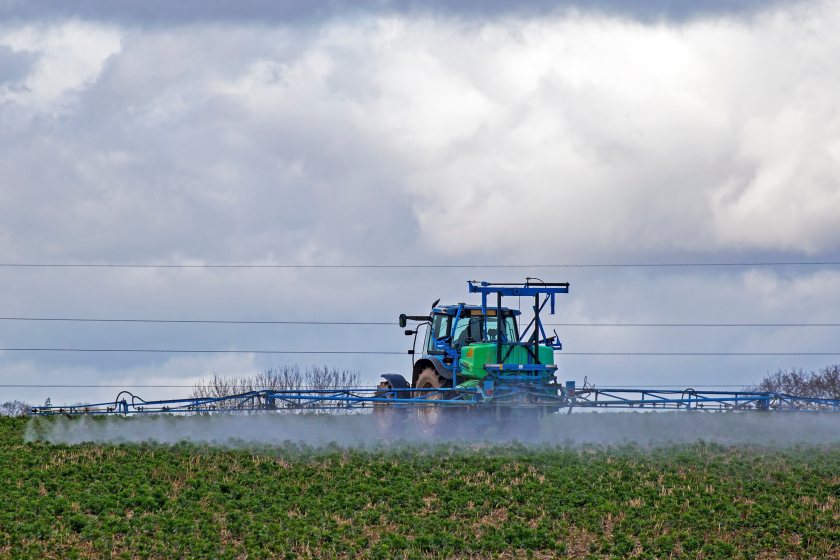
Farmers could be left without vital tools to protect crops unless the government keeps the emergency pesticide authorisation process fast, fair and science-based, the NFU has warned.
The Health and Safety Executive (HSE) published updated guidance in September, saying it aimed to “clarify and strengthen” how emergency authorisations (EAs) are assessed, particularly to ensure that any potential risks to pollinators are fully considered.
However, the NFU fears the changes could make it harder for growers to access essential short-term pest control tools in crises.
The move forms part of a government pledge to phase out the use of neonicotinoid pesticides under the EA regime — but the union says the changes could inadvertently affect many other products vital to crop protection.
NFU Senior Regulatory Affairs Adviser Dr Chris Hartfield said that while the updated rules were framed around neonicotinoids, the vast majority of temporary approvals in the UK have been for other products used to combat invasive pests and diseases threatening both conventional and organic crops.
In recent years, emergency permissions have been used to control spotted wing drosophila in soft and stone fruit, as well as fungal diseases affecting organic apples, pears, sweetcorn and vegetable seed crops.
The pesticide Cruiser SB, which contains the neonicotinoid thiamethoxam, was previously granted limited authorisation between 2021 and 2024 to help sugar beet growers fight virus yellows disease. Those emergency uses were tightly controlled, but the 2025 application for the product was rejected.
Before the treatment became available, some sugar beet growers lost up to 90% of their crops to virus yellows. In 2020, the disease affected 38% of the national crop, cutting yields by 25% below the five-year average.
NFU Deputy President David Exwood said emergency authorisations are a crucial safety net for farmers facing sudden pest or disease threats.
“Emergency authorisations are only applied for in extreme circumstances where there are no other viable options to protect crops from severe threat of disease, pests or weeds, and farmers from economic loss,” he said.
He added that each application should be considered carefully, based on science and evidence. “Strict controls limit how long these products can be used for and the area they can be used on.
Each emergency authorisation application should be assessed on a case-by-case basis, taking a science and evidence-based approach,” he said.
“We are concerned this latest approach taken by Defra could have unintended consequences on the future availability of these emergency measures, upon which farming sectors – facing new pest issues across hundreds of crops – can be reliant.”
Dr Hartfield said the real issue lies in the need for a more proactive and flexible regulatory system that keeps pace with emerging threats.
He argued that the current regime creates “arbitrary but significant gaps in the armoury” for pest and disease control, leaving farmers reliant on short-term measures.
The NFU says HSE and Defra must keep the emergency authorisation system fit for purpose — “straightforward, pragmatic and timely” — to protect food production and consumer safety.
The union said it would continue engaging with Defra to ensure future guidance supports both crop protection and environmental goals.
